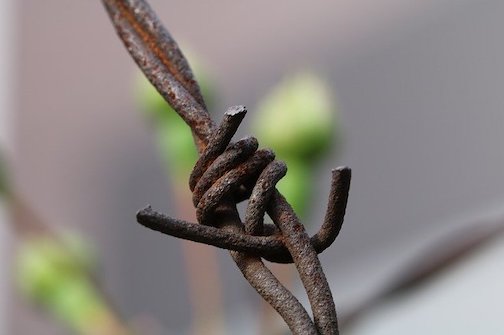Emotional Incest: Will He or She Change?
By Dr. Margaret PaulFebruary 09, 2009
Are you with a partner who is emotionally incestuous with his or her child? Do you keep expecting your partner to change?
 Sharon, one of the members of our website, emailed me asking me to write more on abuse, particularly covert incest. She was in the process of ending her 4-year marriage with her covertly abusive husband, who is emotionally incestuous with his adult daughter.
Sharon, one of the members of our website, emailed me asking me to write more on abuse, particularly covert incest. She was in the process of ending her 4-year marriage with her covertly abusive husband, who is emotionally incestuous with his adult daughter.
"There is no physical involvement, but the only person my husband feels safe with is his daughter. He has used her to 'dump' about our marriage and about his problems. So his daughter is his caretaker, getting the only kind of closeness she can, by being there for him but never getting what she really needs."
As a result, his daughter is now a very angry adult who has many problems in relationships.
I asked Sharon to describe to me her experience of the emotional incest.
"Neither of them take responsibility for themselves or their behavior, so when I came along I suddenly became the one who was at the core of EVERY problem in their lives. Everything became my fault. It was my fault the daughter became angry, it was my fault he withdraws.
"If I had understood the depth of this 'sickness' and that the likelihood of him even wanting to work through any of it was nil, I would have said 'next' immediately. Any parent is going to be protective of their child, but to cling to a child to meet your emotional needs is just not something most people (that I know) realize even exists. We all hear and read about incest with sexual involvement, but nothing about this. It's like incest without the sex."
Throughout her marriage, Sharon hoped that, through therapy, her husband would see what was happening and change. It took her 4 years to realize that he was completely uninterested in changing.
"In a recent article you wrote about abuse, both covert and overt, your last paragraph said abusers rarely change, or something to that effect. That's the part that people need to understand - that abuse is like a tumor with tentacles that are very difficult to detach, and that abusers really don't want to 'deal with it' and typically don't, because their whole world and identity will crumble."
Sharon wishes she had known that it was unrealistic to expect her husband to change. "I would love to help someone not endure the emotional pain I did for as long as I did."
Abuse has many faces - verbal, physical, sexual, and emotional.
Abusers are often experts at appearing open to learning and changing, which is part of their covert abuse. It is vitally important for people at the other end of abuse to give up expecting an abuser to change. Even attending therapy, as Sharon's husband did with her, is not an indication that they are willing to change. Often, attending therapy is just another form of manipulation to get you to stay in the abusive relationship - and another way to point the finger at you as being the cause of the problems.
If someone says they are going to change but no change actually occurs, then you need to accept that the appearance of openness is a form of crazymaking, a form of abuse. You need to accept that there is NOTHING YOU CAN DO to get them to change. You either need to accept the situation as it is, or leave it. Expecting change and trying to bring about change will only cause you more pain.
Join Dr. Margaret Paul for her 30-Day at-home Course: "Love Yourself: An Inner Bonding Experience to Heal Anxiety, Depression, Shame, Addictions and Relationships."
 Send this article to a friend
Send this article to a friend  Print this article
Print this article  Bookmarked 3 time(s)
Bookmarked 3 time(s)
Comments
| Author | Comment | Date |
|---|---|---|
| Join the Inner Bonding Community to add your comment to articles and see the comments of others... | ||

Daily Inspiration
Send blessings of love to those around you who are grumpy, angry, blaming or withdrawn. Reassure your inner child that others' behavior is not about you. Remember: you can help others with your love but you cannot control their intent.
By Dr. Margaret Paul

 Share with Del.icio.us
Share with Del.icio.us Share with Digg
Share with Digg






